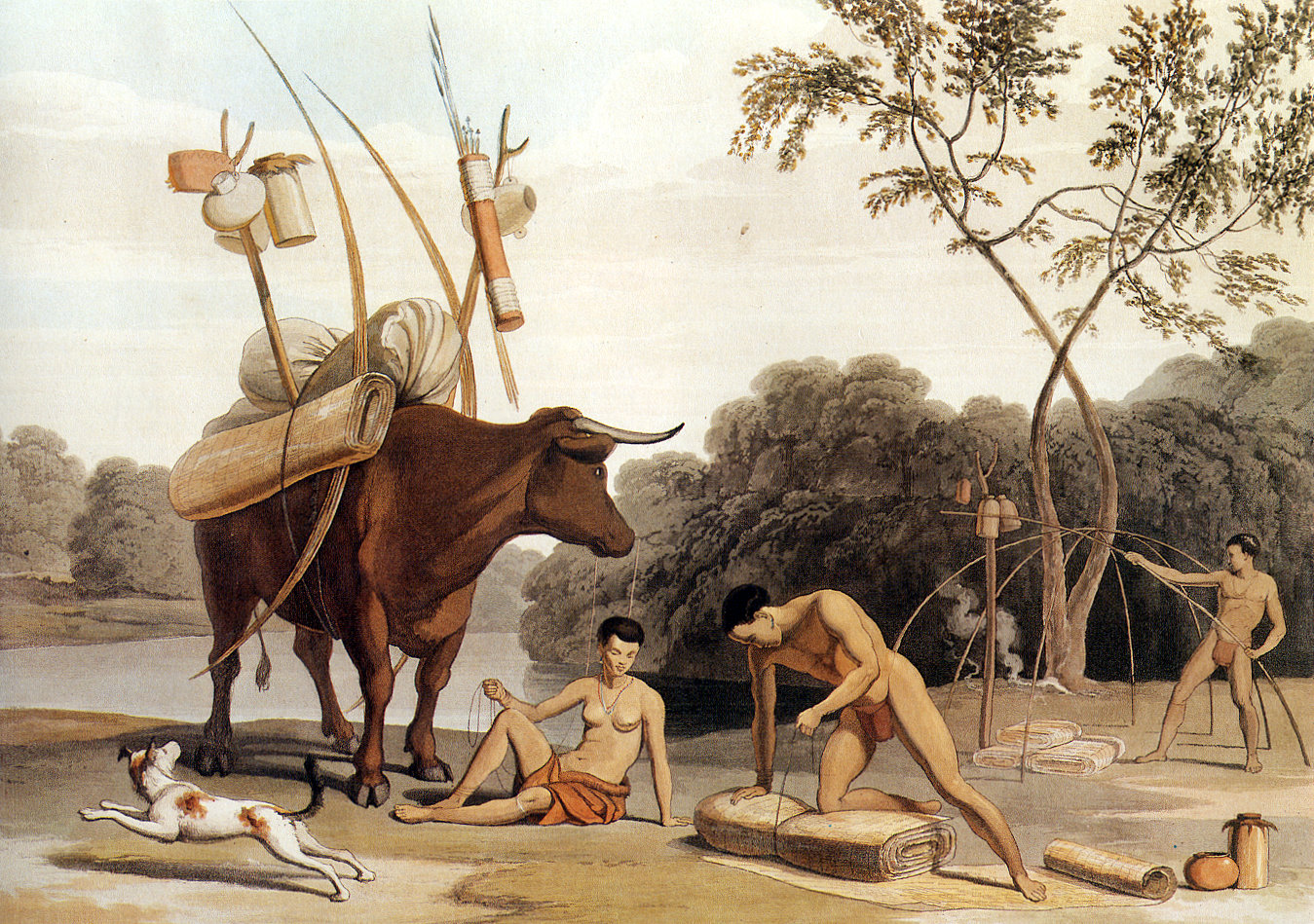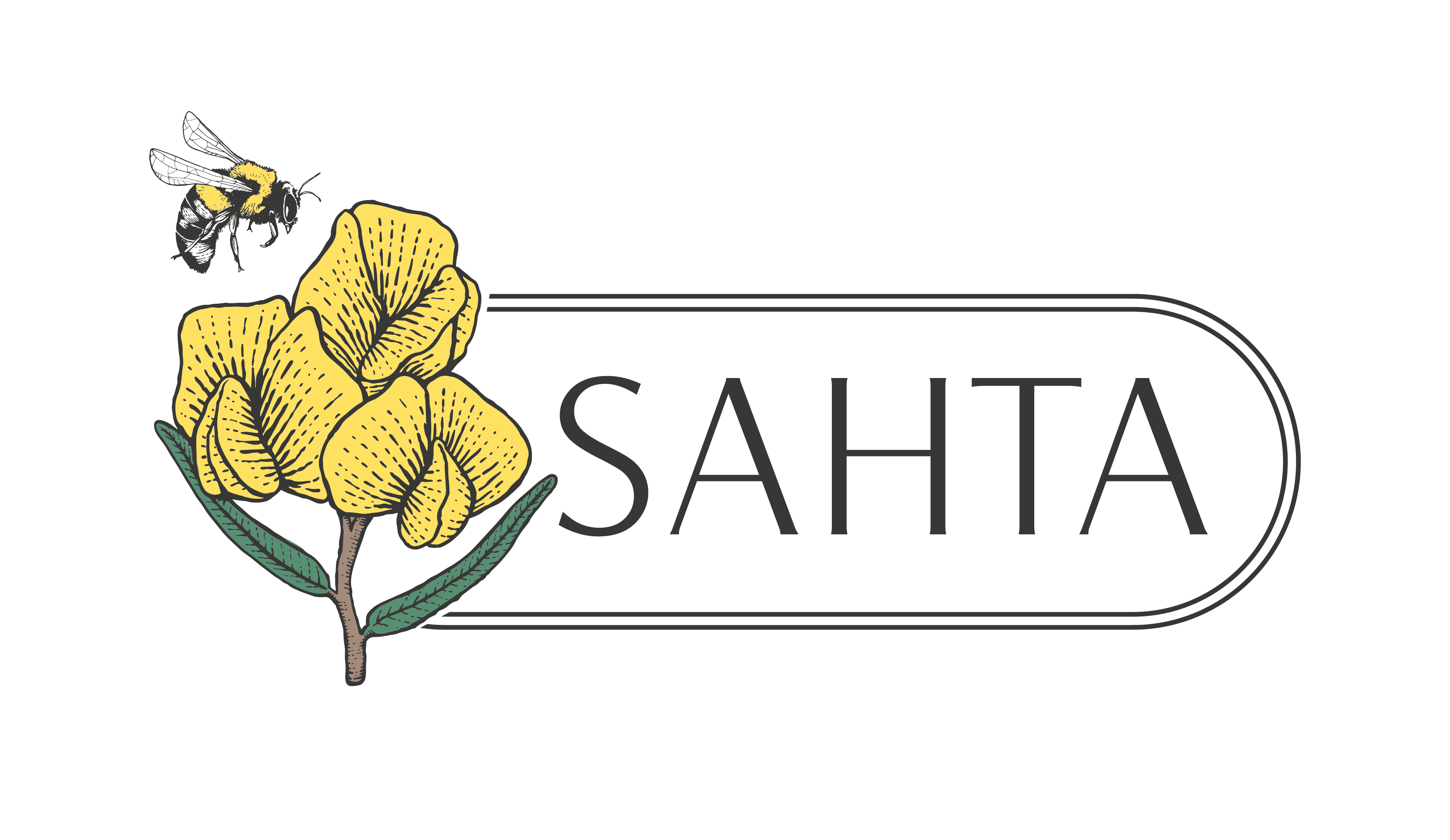Traditional Knowledge
Our First Nations, Khoekhoen and Bushman (sometimes referred to as the San people), indigenous to the arid landscapes of Southern Africa, have a rich history intertwined with the natural world. Among the treasures of their traditional knowledge is their use of Honeybush, a plant native to their ancestral lands. For generations, these indigenous communities have harnessed the medicinal and culinary properties of Honeybush tea, passing down their wisdom through oral traditions.
Honeybush (Cyclopia species) is a fragrant fynbos shrub known for its sweet, honey-like scent and delightful flavour when brewed into tea. The Khoekhoen and Bushman people recognised its value long before it gained global recognition. It is known colloquially as “heuningtee“, meaning “honey tea”, aptly capturing its natural sweetness.

Nomadic Khoekhoe dismantling their huts, by Samuel Daniell (1805)
Medicinal Wisdom
These indigenous communities possessed a deep understanding of Honeybush’s medicinal potential. They harnessed it as a herbal remedy for an array of ailments, frequently brewing it into a soothing tea to relieve coughs, colds, and respiratory issues. Additionally, they bathed in Honeybush to address rashes and skin diseases, and as an alternative nourishment for infants unable to consume milk.
Cultural Significance
Beyond its practical uses, Honeybush held cultural significance. It was integrated into rituals and ceremonies, symbolising unity and harmony within communities.
Sustainable Harvesting
Current best practice sustainable harvesting guidelines for wild Honeybush have emerged from the fusion of generations of traditional wisdom among Honeybush harvesters and modern scientific insights. This blend of age-old practices and ecological expertise has led to sustainable harvesting methods
Safeguarding Traditional Knowledge
Today, the traditional knowledge of the Khoekhoen and Bushman people regarding Honeybush tea continues to influence modern cultivation and utilisation. As Honeybush gains international acclaim for its health benefits and pleasant flavour, it is essential to acknowledge and honour the indigenous communities who have safeguarded this precious plant’s heritage for centuries.
Their profound understanding of Honeybush extends beyond its botanical properties; it represents a connection to the land, a testament to the resilience and wisdom of these indigenous cultures. In recognising their contributions, we celebrate not only the remarkable qualities of Honeybush but also the invaluable cultural heritage of the Khoekhoen and Bushman people.
